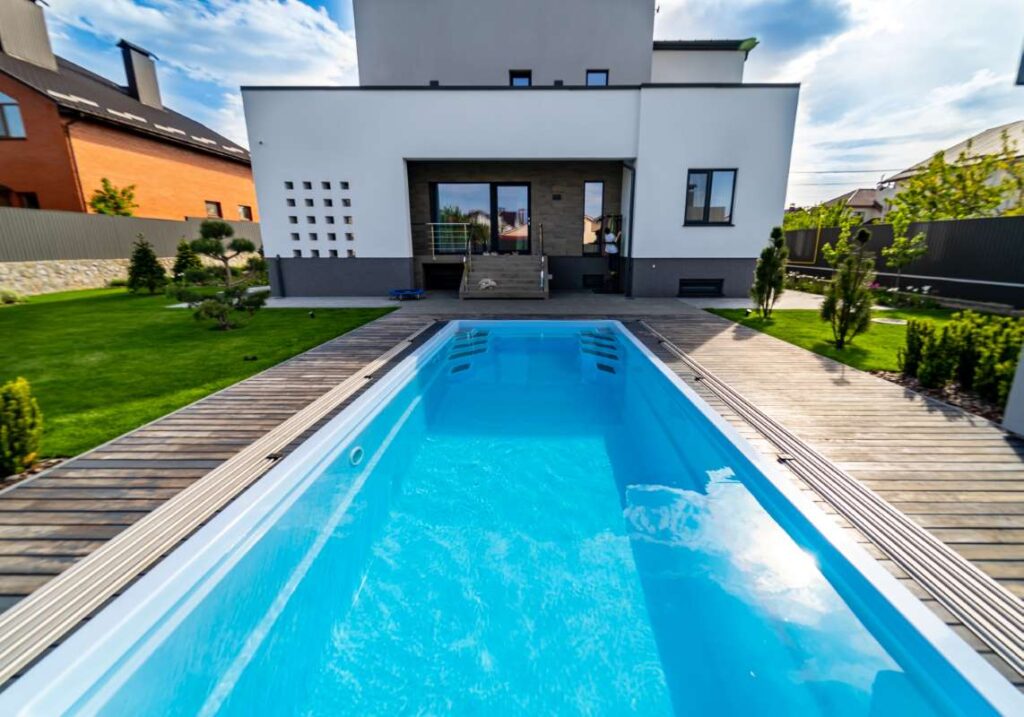Learn about pool maintenance, key skills for success, and how you can start your own pool service business with expert training and support.
Understanding Pool Maintenance: Key Skills to Master
Imagine you’ve just bought your dream pool. The shimmering blue water reflects the sunlight, and you can’t wait to dive in and relax. However, there’s one thing you may have overlooked: pool maintenance. Keeping your pool clean, safe, and well-maintained is an essential part of enjoying it year-round. Whether you own a private pool or are looking to start a pool service business, understanding pool maintenance is crucial.
In this blog post, we will explore the key skills to master when it comes to pool maintenance. From water chemistry to equipment care, we'll cover the necessary steps to ensure pools stay clean and functional. Whether you're a homeowner or aspiring pool service entrepreneur, these insights will guide you toward success.
The Basics of Pool Maintenance
Understanding Pool Water Chemistry
Water chemistry is the foundation of pool maintenance. It determines the cleanliness, safety, and overall quality of the water. Balancing your pool’s chemicals is not just about adding a few chemicals here and there – it's a precise science that requires attention to detail. The main chemicals that need to be regularly monitored and adjusted include chlorine, pH, alkalinity, and calcium hardness.
- Chlorine: This chemical helps disinfect the water and prevent algae growth. It should be maintained at a level of 1-3 ppm (parts per million) for effective sanitation.
- pH Levels: The ideal pH level for pool water is between 7.4 and 7.6. If the pH is too high or too low, it can cause skin irritation, equipment damage, and reduce the effectiveness of chlorine.
- Alkalinity: Maintaining proper alkalinity helps stabilize the pH level and prevents rapid fluctuations. The ideal range is 80-120 ppm.
- Calcium Hardness: Calcium levels are crucial to prevent scale buildup or corrosion of pool surfaces and equipment. The ideal range is between 200-400 ppm.
Regularly testing the water with a pool testing kit is vital to ensure these chemical levels are in balance. Neglecting this aspect of pool maintenance can lead to costly repairs and health hazards.
Skimming and Vacuuming the Pool
Keeping the pool clean requires regular physical maintenance. Skimming debris off the surface and vacuuming the pool’s floor are essential tasks that should be performed weekly. While this might sound simple, there’s a specific technique that needs to be mastered to avoid damage and ensure thorough cleaning.
- Skimming: Use a pool skimmer to remove leaves, insects, and other floating debris. Skimming is best done in the morning before the wind stirs up any more debris.
- Vacuuming: There are various types of pool vacuums, from manual models to automatic ones. Regardless of the type, it’s important to ensure that all areas of the pool are thoroughly cleaned. For manual vacuums, slowly move the vacuum across the bottom, avoiding large swathes at once to ensure proper suction.
Mastering these simple yet important tasks will help keep your pool looking pristine, while also preventing debris from clogging the filtration system.
Maintaining Pool Equipment
The efficiency of a pool is heavily dependent on its equipment. Regular maintenance of pool pumps, filters, and heaters ensures that everything works optimally and avoids costly breakdowns.
- Pumps: The pool pump is the heart of your filtration system. Regularly check the pump’s motor for any unusual noises or signs of wear. It's essential to keep the pump clean and clear of debris.
- Filters: Pool filters need to be cleaned or replaced periodically depending on the type (sand, cartridge, or DE filter). Over time, filters collect dirt and particles, reducing their effectiveness.
- Heaters: For those who enjoy swimming year-round, pool heaters are an essential part of pool maintenance. Regularly inspect heaters for leaks or other malfunctions, and clean them to maintain efficiency.
Proper equipment care is essential to avoid unnecessary repairs and prolong the lifespan of your pool’s mechanical components.
Essential Skills for Pool Service Entrepreneurs
Business Fundamentals
For those interested in turning their pool maintenance knowledge into a full-time business, understanding the basics of running a business is essential. You’ll need to develop skills in customer service, pricing, marketing, and managing your time effectively. Let’s break it down:
- Customer Service: As a pool maintenance professional, providing excellent customer service is key to building long-lasting relationships and earning repeat business. Always be responsive to customer inquiries and address any issues or concerns promptly.
- Pricing: Setting the right prices is crucial to ensure profitability while staying competitive. It’s important to research what other local pool service businesses charge, and adjust your pricing based on factors like location, route size, and the services you offer.
- Marketing: To attract new customers, you'll need to develop a marketing plan that can include online advertising, social media, and word-of-mouth referrals. Establish a solid online presence to reach potential clients.
- Time Management: Pool service businesses often require traveling to multiple locations in a day. Mastering time management will ensure you can service your clients efficiently while maintaining a healthy work-life balance.
Hiring and Training Technicians
As your business grows, you may need to hire technicians to help with the increased workload. Recruiting the right people is essential to your business’s success. Ensure that your employees are properly trained in all aspects of pool maintenance, from water chemistry to equipment repair. Providing ongoing education, such as through platforms like Pool Routes Training, can keep your team up-to-date with the latest industry trends and best practices.
Consider using a pool service training program, like Pool-School, to enhance the expertise of your employees. This platform offers detailed video lessons and quizzes that reinforce the essential knowledge needed to handle pool systems, water chemistry, and equipment maintenance.
Route Planning and Efficiency
When managing a pool service business, route planning becomes increasingly important as your customer base grows. Efficient routing allows you to service more accounts in less time, which translates to greater revenue and reduced costs.
- Pool Routes For Sale: One of the easiest ways to expand your business quickly is by purchasing existing pool routes. With routes available in various locations like Florida, Texas, and California, you can acquire accounts with guaranteed training and support. This method reduces the time spent on lead generation and accelerates your entry into new markets.
If you’re looking for more details on Pool Routes How It Works, visit Superior Pool Routes to explore how you can get started with an established pool service route.
Case Study: Growing a Successful Pool Service Business with Superior Pool Routes
Take the example of John, an aspiring entrepreneur who wanted to enter the pool service business. He had limited experience but a strong desire to build a sustainable business. After exploring options, John decided to invest in a Pool Route For Sale through Superior Pool Routes.
Within weeks, he received his first batch of customers and started servicing pools across his selected area. The extensive training he received through Pool-School equipped him with the necessary skills to manage water chemistry, maintain equipment, and handle customer inquiries. Over time, John’s business grew rapidly, and he was able to hire a small team to help him cover more accounts.
Thanks to the comprehensive support and training provided by Superior Pool Routes, John was able to avoid the common pitfalls of starting a business from scratch and built a successful pool maintenance company that continues to thrive.
Frequently Asked Questions (FAQ)
Q1: How do I get started with pool maintenance?
A1: Begin by familiarizing yourself with the basics of pool chemistry and equipment care. Invest in a good pool testing kit and learn how to balance chemicals. Consider enrolling in a pool maintenance training program to deepen your knowledge.
Q2: What are the most common pool maintenance tasks?
A2: The most common tasks include testing and balancing pool water chemistry, skimming debris, vacuuming the pool, and maintaining pool equipment such as pumps and filters.
Q3: How can I start my own pool service business?
A3: You can start by purchasing an existing pool service route through companies like Superior Pool Routes, which offer pre-established accounts and training programs. This allows you to hit the ground running with a steady customer base.
Q4: What skills do I need to become a successful pool service technician?
A4: Key skills include a good understanding of water chemistry, equipment maintenance, customer service, and time management. A willingness to continue learning and improving is also essential.
Q5: How much can I earn with a pool service business?
A5: Earnings vary depending on the number of accounts and your pricing structure. Typically, pool service businesses can generate a steady income with the potential for growth as you acquire more accounts.
Conclusion
Mastering pool maintenance is not just about keeping your pool clean and safe—it’s a gateway to building a successful business. By understanding water chemistry, learning the ins and outs of pool equipment, and acquiring efficient business practices, you can become a skilled pool technician or entrepreneur. With training, resources, and support, such as those offered by Superior Pool Routes, you can take your pool service career to new heights. Start mastering these essential skills today, and dive into the world of pool maintenance!



